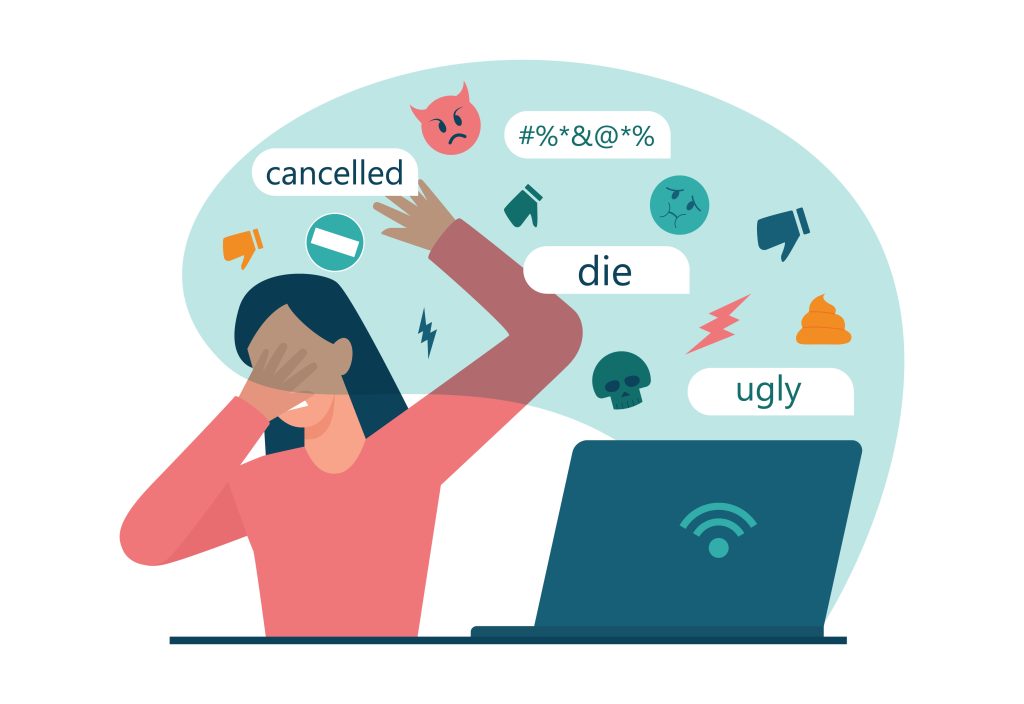Cyberbullying happens when someone uses digital devices to bully, harass, threaten, or humiliate someone. Cyberbullying is not limited to the use of social media platforms alone. Chat rooms, online gaming, emails, text messages, and other digital forums are also included as ways that a cyberbully can interact with their victim. Cyberbullying is a real type of bullying that has ties to stalking behaviors. It should not be ignored. In fact, some states have policies and laws regarding cyberbullying.
Today, more than ever before, people engage with digital platforms. Since the start of the COVID pandemic, people around the world, are spending 20 percent more time on social media. Many young people have witnessed or experienced cyberbullying, but few know there are things they can do to help prevent cyberbullying and respond to it when it happens to them.
Cyberbullying Prevention and Response Tips
Never, ever engage in cyberbullying. Even if you are encouraged to by friends or you believe nobody will find out. Remember there is a person on the other end of hateful and mean comments who may be hurt by what you are saying. Apply the golden rule when interacting online. Many people enjoy the anonymity of online personas which allow them the ability to act outside of social morals. However, online “haters” and “trolling” still cause harm to those who become victims of cyberbullying. If you don’t have something kind to say to someone, consider whether you need to make any comment at all.
Protect your identity. There are options in place with social media to allow you to control who you interact with. Do not make connections or give your phone number to anyone who you do not trust. You can, and should, block people who are not treating you respectfully on most digital platforms.
Track and report cyberbullies to the forum in which you are being targeted. Take screen shots of the posts and send them when reporting the activity. Most forums, such as chat rooms, social media, and online gaming have conduct rules that people have to agree to in order to engage with that forum. When someone doesn’t follow the rules, the digital platform administrators can remove them from the forum.
Do not forward or engage with the cyberbully. Many people taking these actions are doing so simply to get a reaction from their victim. Engaging may encourage bullying behaviors or cause them to escalate. Being mean back does not resolve the problem and may get you into trouble. Be careful about forwarding things from people you don’t know, as they may have a virus or bug which could be harmful to your computer. Don’t forward mean messages to friends.
If you are experiencing cyberbullying, tell your parents. Many young people are afraid to tell their parents because they don’t want the cyberbully to become angrier with them for telling someone about what they are doing. This is a way the cyberbully creates an inequity in power – they are trying to make you feel weak and unable to take action to protect yourself. Do not give them that power to keep you silent. Have your parents help facilitate a conversation with your teacher if you do not feel comfortable with talking to your teacher about what is happening. There are online resources which can help your parents to navigate this conversation. A good place to start is the Social Media Victim’s Law Center’s resources on what parents and teenagers need to know.
